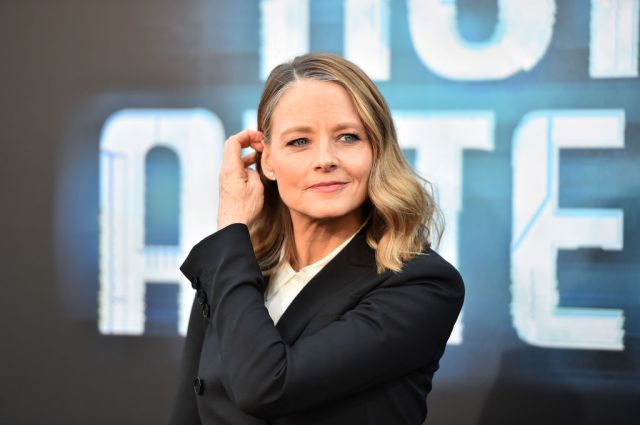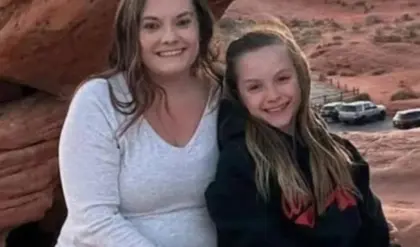When I turned 50, I made a decision to only act in things that I thought were meaningful,” Jodie Foster tells me.
In the eight years since, she’s appeared in a grand total of three films: the dystopian action sagas Elysium and Hotel Artemis, addressing class-warfare and the health-care crisis, and The Mauritanian, which dramatizes the real-life story of Mohamedou Ould Salahi, who was imprisoned in Guantanamo Bay from 2002 to 2016 despite never being charged with a crime. During his time in Guantanamo, Salahi alleges he was subjected to a wide array of torture techniques, including beatings, sleep deprivation, waterboarding, sexual abuse, and a mock execution at sea. He documented his time there in the best-selling memoir Guantánamo Diary, released in 2015 as he was still being detained without cause.

Directed by Kevin Macdonald and hitting cinemas on Feb. 12, The Mauritanian boasts a stunning turn by Tahar Rahim as Salahi, and Foster’s best performance in more than a decade as Nancy Hollander, the defense attorney fighting on his behalf. (They both earned Golden Globe nominations on Wednesday.)
“You’ve got to love him, because he took that experience that could devastate other people and turn them into angry, anti-American, unforgiving people, and through his faith was able to say, ‘No, you’re not going to beat the humanity out of me,’” Foster says of Salahi.
Foster has experienced her fair share of hardship as well—from surviving a lion attack on a Disney film as a kid to being terrorized by John Hinckley, who made an attempt on the life of former President Ronald Reagan in order to impress her. But she overcame them and went on to become one of the most heralded actresses of her generation, winning the Best Actress Oscar twice.
We touched on all this and more of Foster’s extraordinary life over the course of our talk.
How have you been holding up during these strange times?
I’m OK! Look, I’m kind of an internal person—I like to read and watch movies, so it hasn’t been too bad for me. I think the hardest thing has just been watching everybody else suffer and knowing the impact this will have on this generation and future generations to come. That’s been the hardest thing.
Have you been binging on anything fun?
God, you know, I go through periods where I just get sick of watching movies. But right now I’m watching all of the Oscar films, which is nice. I really loved Nomadland. I loved this documentary called Time. I feel like I’ve seen more movies in the last five months than I’ve seen in years, and yet I haven’t been to a movie theater in a year. So, it’s interesting. I have nostalgia for the cinema experience, although I don’t know if everyone is going to go back to seeing movies the same way.
I hope they do. I miss going to the movies terribly. With The Mauritanian, what compelled you to make this movie? I feel like with the exception of The Report, the inhumane plight of Guantanamo detainees hasn’t been given the movie treatment so much.
It seems to be that time. You know, it’s been 20 years, and I feel like we’re now ready to look at that moment in our history and ask all those tough questions, and say, “How did we get there? What was our part in it? What could we have done differently?” And periodically, we have to do that piece of reconciliation if you want to make sure the mistakes you’ve made don’t get repeated again.
There’s an extraordinary level of hypocrisy in the U.S. operating Guantanamo Bay, because we like to play the role of moral police around the world, and yet we’re running this facility which runs contra to anything we purport to believe in.
Yeah—a legacy of the Bush administration, and of their “by any means necessary” philosophy. The idea that there’s a prison that operates outside the Constitution, that’s controlled by us, that our military runs, and yet it’s offshore so we feel like we don’t have to follow the Geneva Conventions, that’s pretty outrageous. I think we all agree it should be closed. Obama wanted to close it and wasn’t able to. I’m not sure why. And it’s really expensive.



